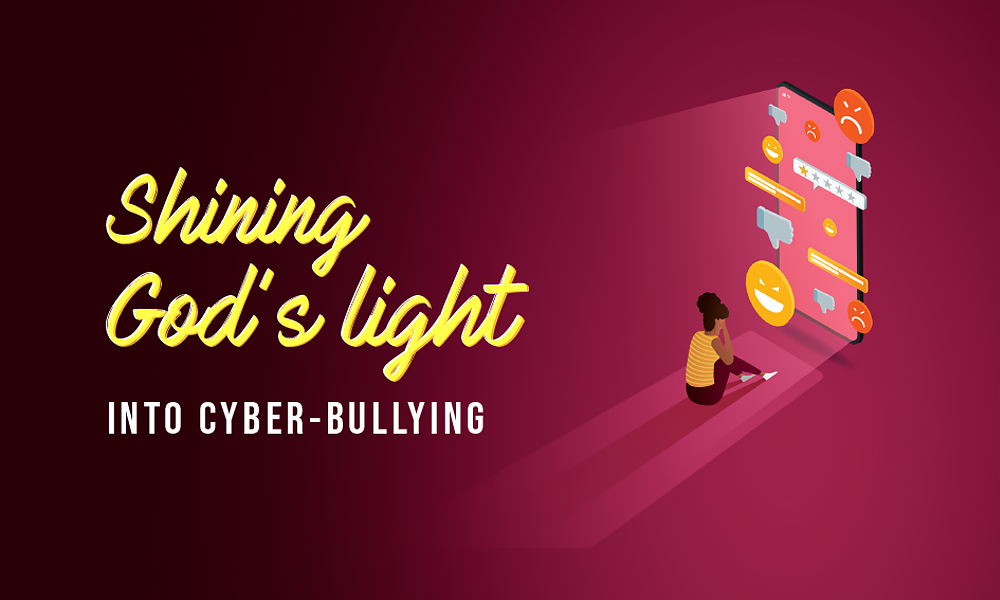
Shining God’s light into cyber-bullying
We don’t have to scroll for long to find a meme, reel or post putting someone down on the World Wide Web. Putting others down online has become almost a new artform, and cyber-bullying might be a common buzzword addressed at school and youth ministry. But how did we get to this point? Why is social media used for the purposes of putting others down? Where does the classic “cyberbully” come from anyway, and what do we do about it as followers of Christ?
How to make a (cyber) bully
Unfortunately, bullying isn’t anything new. There’s Cain and Abel, David and Goliath, and the list goes on. As Alexander Solzhenitsyn famously said, “The line separating good and evil passes ... through every human heart.” One thing we have to understand with bullying is that it comes from woundedness. We live in a world with suffering, sin and trauma. This brokenness was never God’s intention for us, and as a result of it when we encounter evil, we are wounded by it. When Adam and Eve sinned in the garden, they were wounded and started to believe lies. They began to believe the lie that they couldn’t trust God and that they were bad, naked and ashamed.
Bullying similarly comes from lies. When people believe at their core that they are “not good enough, not lovable, or alone,” they can sometimes seek to hurt others to make themselves feel better, funny enough and liked, or even powerful. These lies and insecurities are formed by experiences of suffering and often, misery loves company.
Good light
So what do we do when we witness the bad fruits of insecurities and lies on social media? First, we must remember that God made each and every person very good. We also have to remember that God calls all people to become beloved sons and daughters through baptism and his Church. This means we are called to remind others of their divine honor and dignity. The first step against cyberbullying is to embrace our goodness in God and seek to share this good news of belovedness with the world.
Christ also calls his disciples to be the light of the world. Jesus instructs his disciples to share this light with others so they may know the Father’s love. To be this light in darkness we are called to speak up in the face of bullying and speak the truth of our worth and dignity in God alone. We don’t only speak this truth to those suffering from bullying, but we are also called to speak this truth and responsibility to the bullies as well. Our light to the world is speaking the truth of who and what we are made for, to love God and each and every person he places in our lives.
Don’t go it alone
As we become this light in the face of bullying, we never have to go it alone. Speaking the Gospel truth online or in person can be intimidating. We can turn to good friends, youth ministers, priests, parents and adult mentors for guidance and wisdom to navigate facing the bullies and negativity around us. We can also turn to the sacraments and prayer for the grace to speak truth and love for those most suffering and alone in our world.
The reality of cyberbullying is that it is a product of a broken and digital world. As Catholics and followers of Christ, we are given the real grace, the great responsibility and the powerful gifts to shine the love and truth of God to all those who are broken, wounded and lost as we encounter others in our daily lives online.
Adam Cross is a licensed marriage and family therapist in California, and he worked as a youth minister at his local parish for 8 years. Adam loves to integrate the Catholic faith into his therapy practice.



